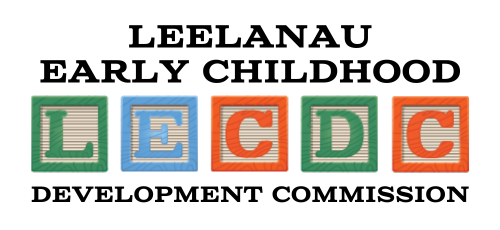BRAIN DEVELOPMENT
Early experiences influence brain development.
Pictured here are the brain scans of two 2-year-olds. The child on the left experienced a healthy environment. The child on the right was persistently neglected. The white circles define areas of brain architecture and activity. The left brain has developed normally. When these areas are underdeveloped, a child’s ability to regulate their behavior, problem-solve, and focus their attention is severely compromised. The effects of early experiences persist into adulthood.
Critical phases of brain development start very early and begin to decrease sooner than you may think!
Babies are born learning - the brain is active even before birth, which is why babies respond to their parents’ voices very soon after delivery. In the time it takes to read this paragraph, the brain of a healthy toddler will have added 24 million new synapses (connections between neurons) and built new memories into the architecture of the brain. But, unfortunately, synapse formation declines through the rest of our lives, so it’s critical that children participate in high-quality early childhood experiences that stimulate the configuration of essential brain synapses.
Children who start kindergarten with the capacity and skills they need to fully engage in life are more likely to succeed.
“The remarkable abilities of newborn babies highlight the extent of prenatal brain development. At birth, a baby knows her parents’ voice and may be able to recognize the sounds of stories her parents read to her while she was still in the womb.” (Urban Child Institute).
There are a few moments in life that can make a man cry…You won’t believe what happens when comedian Michael Jr. is there when his daughter is born.
Brain Development 101
Photo courtesy of the Leelanau Children’s Center
In the beginning, there is a little brain and a relationship.
An infant’s brain is organized by relationships with caregivers and the environment, literally built by us as we engage and our baby responds. Astoundingly, eighty to ninety percent of brain development happens after birth. How a baby’s brain develops, - optimally, or not - depends on adults.
What is Early Childhood Development?
Photo courtesy of the Leelanau Children’s Center
The science of brain development validates the huge return on our investment in early childhood. These basic concepts, established over decades of neuroscience and behavioral research, help illustrate why child development - particularly from birth to five years - is a foundation for a prosperous and sustainable society.
Lifelong Effects
Photo courtesy of the Leelanau Children’s Center
The Importance of Playgroups for Brain Development
Dr. Jack Shonkoff, Professor of Child Health and Development at Harvard University, shares his important play tips to boost your child’s brain. In the first 1,000 days of life, a baby’s brain forms 1,000 new connections every second. Just 15 minutes of play can spark thousands of brain connections.
We know that children are affected by their surroundings. Child development specialists have produced decades of research showing that the environment of a child’s earliest years can have effects that last a lifetime. Thanks to recent advances in technology, we have a clearer understanding of how these effects are related to early brain development.
Nature or Nurture?
Photo courtesy of the Leelanau Children’s Center
New scientific research shows that environmental influences can actually affect whether and how genes are expressed. In fact, scientists have discovered that early experiences can determine how genes are turned on and off and even whether some are expressed at all. Thus, the old ideas that genes are “set in stone” or that they alone determine development has been disproved. Nature vs. Nurture is no longer a debate - it’s nearly always both!
Nurturing the Future
Photo courtesy of the Leelanau Children’s Center
Studies have shown that healthy brain development during early childhood increases the likelihood of success later in life. By providing supportive, nurturing environments where children feel protected and learn social emotional skills, we have a greater chance of setting them up for a lifetime of good health. Check out this 1 minute video.
The Case for Science-Based Innovation in Early Childhood
Jack P. Shonkoff, M.D., Director of the Center on the Developing Child at Harvard University, describes the Center’s mission and its vision for using science to innovate in the early childhood field. They are working to fundamentally change the lives of children facing adversity. Hear Dr. Shonkoff explain:







